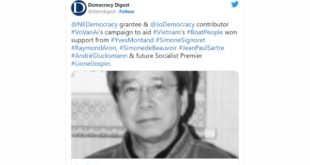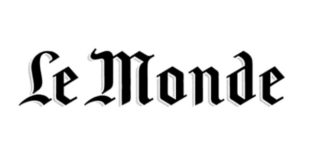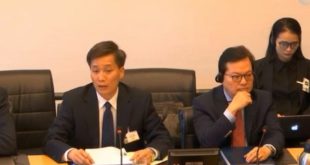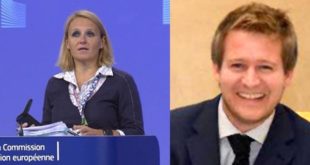HANOI, Oct 21 (AFP) – Vietnam has intensified its crackdown on an outlawed Buddhist church, placing senior monks under house arrest to isolate them from their followers, the church’s overseas information arm said Tuesday.
The Paris-based International Buddhist Information Bureau (IBIB) said 11 monks from the Unified Buddhist Church of Vietnam (UBCV) had been formally or unofficially ordered to remain in their pagodas.
In a statement, the IBIB expressed particular concern for UBCV patriarch Thich Huyen Quang, 86, and his deputy Thich Quang Do, 75, who are both in poor health.
All the monks targeted, it said, had been recently given new roles within the executive committee of the UBCV, which was banned in 1981 because it refused to come under the control of the Communist Party.
The IBIB also said the mobile phones of the monks used just once for overseas communications were immediately cut off and could not be reached again — a tactic often used by the communist regime — while pagodas across southern and central Vietnam had been placed under round-the-clock surveillance.
The foreign ministry was not immediately available for comment.
Western diplomats have publicly and privately condemned the government’s latest actions towards the dissident church.
On Saturday the US State Department’s Ambassador-at-large for International Religious Freedom, John Hanford, began a week-long fact-finding mission to Vietnam. Washington is under pressure at home to get tough with Hanoi over human rights.
The crackdown against the church escalated on October 8 when Quang, Do and other monks were prevented from leaving the Nguyen Thieu Monastery in the central province of Binh Dinh for Ho Chi Minh City.
After a 10-hour stand-off outside the monastery they were allowed to proceed but they were stopped again by police the following morning and taken in for questioning.
Quang, who has been under effective house arrest without charge or trial for more than two decades, was taken back to Binh Dinh. Do, a 2003 Nobel Peace Prize nominee who was released from two years of house arrest in late June, was taken to the Thanh Minh Zen Monastery in Ho Chi Minh City.
Last week the foreign ministry admitted that three senior UBCV monks who were accompanying them had been placed under house arrest for two years for violating the country’s strict national security legislation.
But the ministry has refused to confirm the status of Quang and Do. It has, however, accused them of being in possession of state secrets and trying to reorganize the church with the help of outside forces.
Quang and Do are Vietnam’s most prominent religious dissidents, and many analysts believe they have not been put them under formal house arrest to avoid fierce diplomatic criticism.
Speaking by mobile phone to IBIB president Vo Van Ai from the Nguyen Thieu Monastery before the line was cut, Quang said the pagoda was surrounded by security agents.
“The authorities say one thing and do another, They are not respecting promises to correct past mistakes and cease repression against the UBCV,” Quang was quoted as saying.
“They have deliberately separated Thich Quang Do and I in order to prevent the UBCV from freely exercising its religious activities.”
Earlier this year, Hanoi appeared to change tactics towards the UBCV, with Prime Minister Phan Van Khai holding a landmark meeting with Quang in April.
UBCV sources say the government subsequently tried to persuade the monk to take up a senior position in the state-sponsored Vietnam Buddhist Church — an offer he has consistently refused.
ben/pch
 Quê Me Quê Me: Action for democracy in Vietnam & Vietnam Committee on Human Rights
Quê Me Quê Me: Action for democracy in Vietnam & Vietnam Committee on Human Rights




